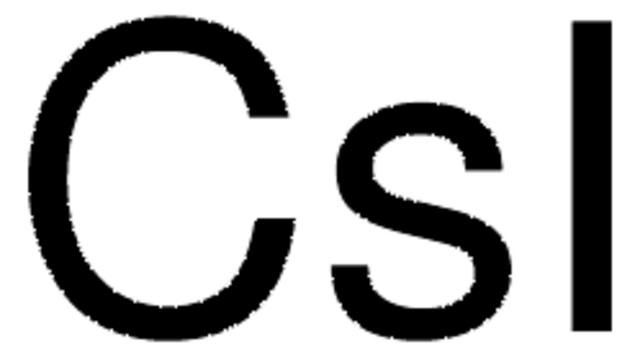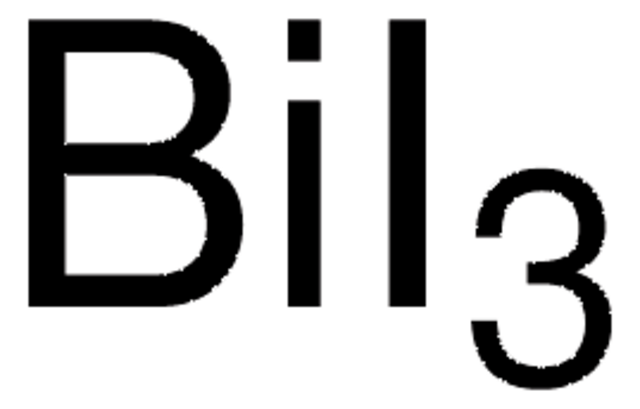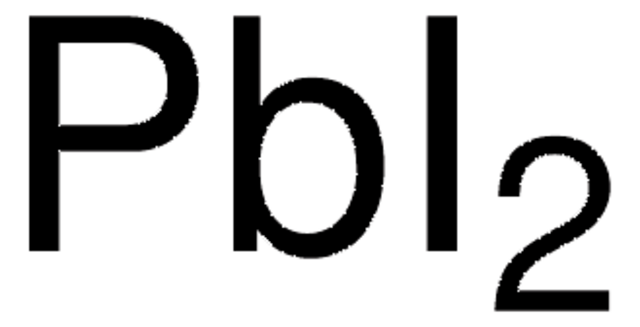914819
Cesium iodide
AnhydroBeads™, 99.999% trace metals basis, (Perovskite grade)
Synonym(s):
Cesium monoiodide
About This Item
Recommended Products
product line
AnhydroBeads™
Quality Level
Assay
99.999% trace metals basis
form
crystals
particle size
-10 mesh
mp
626 °C (lit.)
density
4.51 g/mL at 25 °C (lit.)
SMILES string
[I-].[Cs+]
InChI
1S/Cs.HI/h;1H/q+1;/p-1
InChI key
XQPRBTXUXXVTKB-UHFFFAOYSA-M
Looking for similar products? Visit Product Comparison Guide
Application
Features and Benefits
Packaging
Legal Information
Signal Word
Warning
Hazard Statements
Precautionary Statements
Hazard Classifications
Aquatic Acute 1 - Repr. 2
Storage Class Code
13 - Non Combustible Solids
WGK
WGK 2
Flash Point(F)
Not applicable
Flash Point(C)
Not applicable
Choose from one of the most recent versions:
Certificates of Analysis (COA)
Don't see the Right Version?
If you require a particular version, you can look up a specific certificate by the Lot or Batch number.
Already Own This Product?
Find documentation for the products that you have recently purchased in the Document Library.
Articles
To achieve net-zero emissions by 2050, renewable power contributions must triple. Photovoltaic stations provide vital utility power, achieved primarily through third- and fourth-generation technology. Promising trends include recycling and revolutionary, ultra-lightweight, flexible, and printable solar cells.
Our team of scientists has experience in all areas of research including Life Science, Material Science, Chemical Synthesis, Chromatography, Analytical and many others.
Contact Technical Service








